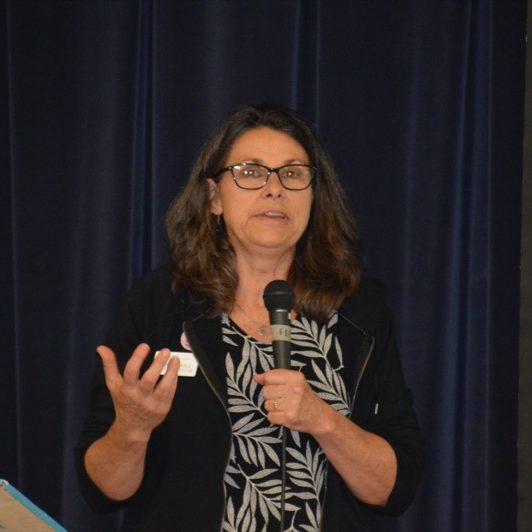In his December post in Quest for Meaning, the publication of the Church of the Larger Fellowship, a UU Congregation Without Walls, Prof. Mark Morrison-Reed writes about a conversion experience of his own: “Listening to Gordon McKeeman talking about the ‘Persistence of Universalism’ I got it. This was a religion of radical and overpowering love. Universal salvation insists that no matter what we do, God so loves us that she will not, and cannot consign even a single human individual to eternal damnation. Universal salvation – the reality that we share a common destiny—is the inescapable consequence of Universal love.”
I suspect that Morrison-Reed’s words reach each of us a little differently. What strikes you? I especially like the use of the word ‘consequence’ for such a beautiful concept as universal salvation, which he spells out as “the reality that we share a common destiny.” We are, indeed, in this proverbial boat together.
You can find “God is Love” etched into the altar in Ferry
Beach’s outdoor chapel. I wonder how we put beliefs like these into practice.
How do we operationalize the concept that God is Love? What would it mean for
us to live “God is Love” in words and actions, not just in thought, every
day?
Morrison-Reed goes on to say: “what we yearn for is unconditional love, but it
is contradicted by our experience. Instead, the primary message each of us
receives over and over again is: behave and be loved, behave and be loved. The
implication is that those who are good and compliant are loved, and all others
are not.”
Does this ring true for you? It does for me. Our shared reality is that life is
messy and we humans are imperfect. Unfortunately (but not surprisingly), we
often take these messy realities of ours and transfer them to our understanding
of the divine. “In other words,” Morrison-Reed says, “people have taken their
own experience of conditional, judgmental, imperfect human love and ascribed it
to God.”
But then there’s the “persistence of Universalism,” drawing us back to the core
belief that God is Love. God is not my love or your love. God is pure love and
this love refuses to be held back. This love demands nothing of us.
So rather than take our imperfect human reality and ascribe it to God, what would
it look like to take the pure love of this Universalist God and ascribe it to
our reality?
Morrison-Reed calls it “the Gospel of a larger hope.” He says, “What kind of a
God was this” that would “drag the last sinner by his collar…into heaven?” What
kind of God indeed. How would your life be different if you lived from this
place in every moment? How would our society be structured if we could all live
from this place?
For the full article see: www.questformeaning.org/page/reflecting/dragged-kicking-and-screaming-into-heaven



